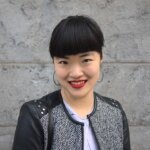Multiple LGBTQ2S+ former students from Briercrest College and Seminary in Saskatchewan are speaking out about alleged homophobia, abuse and discrimination they experienced during their time at the school.
Eight former LGBTQ2S+ students at the Caronport, Saskatchewan evangelical college told the Toronto Star earlier this week that they’re speaking out because they are concerned for current students. Their allegations range from being outed to peers and faculty, witnessing conversion therapy and being alienated from the community for their queerness. Many have left the institution due to homophobia, and are currently in therapy for religion-based traumas.
Jordan McGillicky is one of the former students. When she started studying at Briercrest in the fall of 2020 as a closeted bisexual woman, she was in a long-term relationship with a man and felt like she “was a part of the community.” But when that relationship ended and she started seeing a woman in the summer after her first year, she noticed a shift in how she was perceived after returning to campus.
“I tried to hide my relationship with my ex-girlfriend from people at Briercrest for this specific reason, because I was not sure what would happen. I knew that the school says in their statement that they adhere to the traditional teachings of the Church,” she told Xtra, noting her ex-girlfriend was not a fellow Briercrest student and from another city, which meant they were never on campus together. She suspects her former classmates found out about her relationship through her social media profiles.
Things came to a head when McGillicky was offered a job as a resident advisor (RA) at the residence hall, which she had lived in for two years, at the end of her second year. She was due to start the position in the fall of 2022. Pictures of the newly hired RAs were posted in her residence hall, so it was public knowledge she would be a part of the next school year’s staff.
“I got a text from my residence director, who interviewed me and hired me. She said that she was told by another residence director that anonymous students had come forward with ‘concerns’ regarding me in the position,” she said, noting that at that time she had already broken up with her ex-girlfriend and was single. “It was her job to talk to me and let me know that the code of conduct of the institution does not allow for individuals in a same-sex relationship to be an RA.”
McGillicky’s residence director told her that in order for her to accept the position, she had to promise to abstain from same-sex relationships for the duration of her employment. According to her, the residence director did not agree with those terms or those beliefs—but was forced to abide by the school’s policy. McGillicky refused the terms, deeming them “unfair,” and ultimately decided to transfer to another institution for the remainder of her studies, citing how she was treated regarding her RA job as a reason for her decision.
McGillicky says she is not expecting any apologies or compensation, and just wants to move on with her life. But she does hope that Briercrest’s policies regarding homosexuality change. “I think that transparency, and also accountability, needs to be increased,” she said. “What does implementing the Bible’s traditional teaching on homosexuality mean for your institution’s policies and how that might affect a queer person attending your school?”
Michael Pawelke, the president of Briercrest, declined to address the allegations in an interview with The Canadian Press, citing privacy concerns. Pawelke also denied that the school practiced conversion therapy, and confirmed that it had policies in place to deal with harassment, sexual misconduct and sexual assault. He confirmed in a written statement to The Canadian Press that the school did not promote sexual activities outside of monogamous, heterosexual marriage. The school’s student code of conduct also references a Bible verse about how those who “practice homosexuality” will never inherit God’s kingdom.
This is not the first time Briercrest has come under fire for its treatment of queer people. Documents and emails obtained by The Canadian Press show that the Saskatchewan Party’s government was aware of alleged discrimination at the school as far back as 2015, when former student Jodi Hartung raised concerns with Pawelke and other officials. She sent a letter detailing how LGBTQ2S+ students at the institution were self-harming and made attempts on their lives. Hartung herself said she had figured out she was queer halfway through her degree, and thought it was not reasonable to expect queer people to simply not attend religious institutions.
Scott Moe, the advanced education minister of the time, asked an independent provincial college oversight board to investigate Hartung’s allegations. The board recommended that institutions put in place policies and practices that are in line with their obligations under the Saskatchewan Human Rights Code and the Saskatchewan Employment Act. It also recommended that schools be required to inform students of their rights and responsibilities. In 2019, the government rejected those recommendations, citing that they did not feel anything needed to be done. They did say they adopted a recommendation of writing a letter to Briercrest and Hartung outlining the investigation. Moe was not available for comment.
“I understood I was at a Bible college. Every other queer person that went there understood that they were at a Bible college and what the Bible says about homosexuality,” said McGillicky. “But that doesn’t open the gate for discrimination to take place. Religious freedom does not excuse discrimination and does not give you the freedom to discriminate on specific groups of people.”


 Why you can trust Xtra
Why you can trust Xtra


